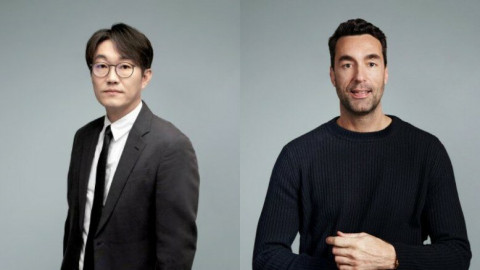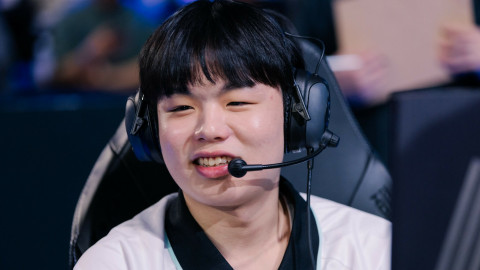
Online gaming has a sexism problem. Every woman has an anecdote or twenty to share, ranging from the relatively harmless, yet extremely frustrating, “is that a girl?” to deeply disturbing rape and death threats. GamerGate, a misogynistic harassment campaign, is only four years behind us, and with the rising popularity of live streaming, the sexism gamers commonly experience is in the spotlight now more than ever.
Yet, tangible solutions to a problem that has plagued gaming communities since their inception are few and far between. Gaming companies now frequently host events intended to support and engage with women working in the gaming and esports industries, and every major organization is quick to tout its inclusion of female gamers, but ultimately, these do little to improve the day-to-day in-game experiences of women. Communities themselves – and the individuals that comprise them – are responsible for enacting tangible change.
Assumptions and non-solutions
The chances that any gamer reading this, male or female, has encountered a situation in voice chat in which a female gamer is being harassed for her gender is high, but the likelihood that they have spoken out in-game against said behavior when they themselves are not the victim is low.
Generally-speaking, people do not condemn sexism in-game when they see it not because they are bad people or because they condone the behavior, but because they have adopted the attitude and rhetoric that so many have over the years: harassment is the cost of being a female gamer who speaks. It is seen as an unfortunate, but inevitable, occurrence; a fact of life for women in gaming.
And so women are proffered or otherwise arrive at a variety of solutions to this epidemic, all in the same vein: leave voice chat, mute the harasser (if possible), or simply do not speak. At the extreme end of the spectrum, they are told to use voice changers to disguise their femininity.
These “solutions” Band-Aid the problem, but they do nothing to solve it. Instead, it must become common practice for bystanders and witnesses to this behavior to speak out against it as it is occurring.
The problem with telling women to not speak in voice chat or to leave when they are harassed is that both erroneously place the onus on women to remove themselves from a gaming space that they have as much a right to as anyone else. It is akin to telling a bullied student to leave the lunchroom to avoid catching a bully’s attention rather than reprimand their bully. It punishes them for the behavior of others; erases them from the surface of the community; and, does not indicate to harassers that their treatment is unacceptable in the eyes of their fellow gamers.
The last point is of particular importance. Women in gaming need to be shown by their peers – not just CEOs touting inclusion initiatives and diversity statistics – that they are welcome, wanted, and will be treated equally in their communities when it matters. After-the-fact reports and punishments may temporarily remove harassers from the game, but they do not encourage women to continue participating in voice chat, a fundamental aspect of most online games, and they do not necessarily indicate to harassers that their behavior is not approved by the community itself.
Gamers regularly condemning verbal abuse when they hear it, on the other hand, does. This not to say that each of us is responsible for shouting with sexists or composing diatribes on the importance of diversity in gaming. Speaking up can be as simple as telling a harasser to be quiet or letting their victim and your other teammates know that you are muting (and/or reporting) the bully because of their abuse. The act of voicing that you are muting someone who is accosting a female teammate does considerably more than muting them and saying nothing.
It seems extremely simple because it is, but that does not mean that it is not powerful. Speaking up may not instantly silence a particular harasser or instantly change their ways, but it will leave the woman with an ally (or allies) and no longer wondering if the rest of her teammates silently concur with the bully’s words. The quick pivot and public apology from a man who was recorded harassing prominent Twitch streamer “Anne Munition” earlier this week is merely one example of the power of a community that is outspokenly intolerant of sexism.

Simple displays of comradery flip the script by turning the harasser, rather than the woman, into an outlier on the team and in the community, and doing so is important for encouraging women to remain active in voice chat the way men are without hesitation. Demonstrating that any harasser is only one bad egg in a game encourages women to take a chance on speaking again in the next game and the game after that, and steadily more and more women become emboldened by the support of their fellow gamers and the examples set by other women who continually speak.
Community condemnation
Women absolutely can and do defend themselves when harassed, but to do so repeatedly without tangible impact or support is exhausting. It becomes easier to remain silent and disappear into the background than to fight for a place in an online gaming community that too often does not appear to want them.
It is easy to belittle the considerable female presence in gaming when so few are willing to speak in voice chat for fear of more of the harassment they have become familiar with. Women should not be the only ones actively condemning sexism, and harassers need to be shown that the community at large, not just the woman they already think so little of, does not condone their behavior and will not stand idly by as another girl or woman is browbeaten into habitual silence.
Sort by:
Comments :0






